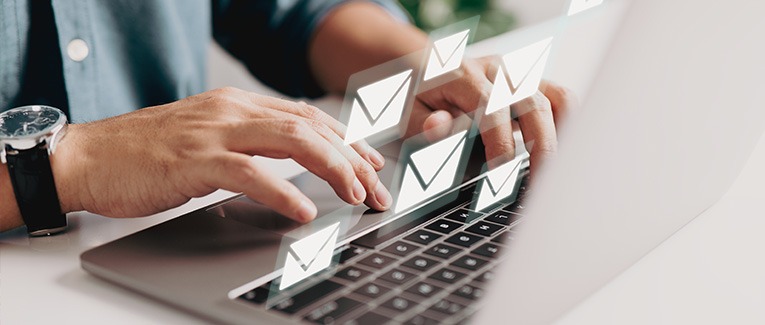
Emails are quick and convenient, and like every other form of communication, the etiquettes of email also vary with culture.
As a newcomer, you might be unaware of these unspoken rules. Chances are that your usual way of writing an email may be considered unprofessional or impolite.
This article will inform you about the do’s and don’ts of the American email system.
1. Do be affirmative in your emails
You will want to steer clear of phrases like, “I am not sure” and “I don’t think I can.” Use more positive language like “I will try my best” and “I’ll do what I can.”
American culture is individualistic. Where you come from, there might be more emphasis on working together and community value, but doing things yourself is a quality most Americans possess.
This is why your colleagues will most likely expect you to be able to do the work assigned to you. So, conveying your hesitancy can make you seem unfit for the job.
2. Do be careful of the personal and professional boundaries
Americans value their work a lot. Most people you meet will strongly identify with their work. Some people’s lives actually revolve around their work.
So, you’re likely to form close, personal friendships with your coworkers. In such cases, you are expected to maintain personal and professional boundaries.
Do not use your work email to send messages about personal things. Keep your work emails strictly professional, and use a personal email to communicate about your lives.
3. Do show your true emotions
You might think you have to sugarcoat your work emails, but it is perfectly acceptable in the U.S. to be honest. If you disagree with something, say it, politely. If you are passionate about a specific project, convey it.
As long as you’re concise, your enthusiasm will be appreciated. Americans are more open and more honest in their emails as compared to most other cultures.
4. Do reply to that late-night email
Your work emails might have been confined to the 9-5 before, but Americans handle things differently. Americans often work longer hours, and some might even work around the clock.
It is not uncommon to receive emails at night. If you are awake, reply. Replying within 24 hours is common courtesy, so no one expects you to reply immediately. But it shows that you’re an invested employee if you get to emails quicker.
5. Do protect privacy
Everyone wants to protect their privacy, but Americans are more concerned about it than some countries. This is because America is a highly developed country and technology is present almost everywhere. Hence, the risk of identity theft also increases.
Emails are easy to copy and forward. Third parties can intercept your emails, and company management has access to your work emails.
Do not share any personal or confidential information. If you have to share such information, do so in person or over the phone.
6. Don’t use BCC when you should actually be using CC
If you’re sending out a mass email, use the BCC field for the recipients. Otherwise, you’re violating other people’s privacy by revealing their email addresses.
Use the CC field only when you want the recipient to know all who were a part of the email. This way the identity of the people is protected not only from the main recipients, but also other people who were included in the BCC field.
7. Don’t hit reply all
If someone sends an email, be it your university or office, don’t hit ‘reply all.’ Use the function only if you have something valuable to add that is important for everyone involved in the email to know.
If someone has shared good news and you want to congratulate them, only reply to them. Otherwise, you can trigger a chain of responses that clutters everyone’s inbox.
It is very easy to hit ‘reply all’ instead of just ‘reply,’ so always double-check.
8. Don’t use emojis
An email without an emoji might seem a little too formal to you, but it’s really not. Your email to your professors, authorities, and colleagues is meant to be very professional in nature.
Unless you are emailing your friends, don’t use an emoji. A smile or a winky face can make your email look extremely inappropriate. In fact, emojis can even trigger the app to send your email to the spam or junk folder.
9. Don’t use humor
Humor is a great way to build rapport, but it often doesn’t work over emails. Americans aren’t fans of high-context emails. They want your email to be as concise as possible.
Also, your humor can be misinterpreted. Sarcasm and jokes rarely do well without body language or vocal tone. You don’t want to risk coming across as unprofessional.
10. Don’t write long emails
Some cultures are high-context and some are low-context. If you come from a country like India or France, you might be used to writing longer emails that avoid direct confrontation.
You beat around the bush and implicitly convey your main point, and even engage in pleasantries.
Drop that habit. Americans follow a low-context culture. Keep your email short and include only the necessary information.
Email culture varies across the globe. One of the reasons it differs so much is because of what the technology has replaced. For Europeans, email replaced the business letter, and for Americans, it has replaced the telephone. So, you might come across more emails that start with ‘Hi’ or ‘Hello.’ Your interactions with daily American life will also familiarize you with the American culture, and you’ll get better at interpreting and writing emails.

